By MALIK MERCHANT
(Publisher-Editor, Simerg, Barakah, and Simergphotos)
I consider Alidina Jamal, Allaudin Daya and Shamshu Bandali Haji to be among the list of my heroes for their inspiring and uplifting recitations of Ginans in East Africa and Canada. My first hero, in chonological sequence, was Alidina Jamal of Upanga Jamatkhana in Dar es Salaam, Tanzania. I still recall the day when I brought home miserable results from my Form 1 final term exams. While I had stood 2nd in the class during the first two terms, my indulgence in cricket had set me back a few dozen places and I was at the bottom of the class – 42 out of 44! I had never seen my late dad, Alwaez Jehangir Merchant (1928-2018), as mad as he was on that day, but he was a loving dad too. After all the scolding — and more — that I received, there was one piece of advice he gave me that held true throughout my life.
He asked me to be in attendance in the Jamatkhana well before the first Dua was recited, so that I would avail myself of the truth and beauty of the holy Ginans composed by Ismaili Pirs centuries earlier. My dad desired that I should carry in my heart Muslim values that the Pirs taught, as well as gain an understanding of the Shia Ismaili faith, which are articulated well in the Ismaili Pirs’ compositions.
article continues after photo
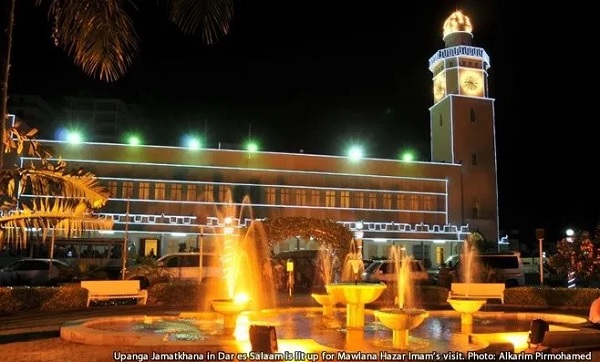
I followed the advice he gave me and started arriving at the Upanga Jamatkhana several minutes before the dusk Dua, as often as I could. This is how I was introduced to Alidina Jamal — and later to Allaudin Daya and Shamshu Bandali Haji — through his almost daily routine of singing numerous verses from Pir Hasan Kabirdin’s monumental composition, Anant Akhado. The recitation brought me an awareness of the magnificent Ismaili tradition of Ginans. I was then in my teen years. The importance of Ginans has been emphatically made in the following quote by Mawlana Hazar Imam at an evening of Ginan recitations or concert (mehfil) held in Karachi in December 1964.
“I would be surprised if ever such a big Mehfil-e-Ginan has ever been held…many times I have recommended to my spiritual children that they should remember ginans, that they should understand the meanings of these ginans and they should carry these meanings in their hearts. It is most important that my spiritual children…hold to this tradition which is so special, so unique and so important to my Jamat…I have been deeply happy tonight, deeply happy because I have seen the happiness in the hearts of my Jamat and this is what makes Imam happy” — Mawlana Hazar Imam, Karachi, December 16, 1964, published by the Ismailia Association for Pakistan.
article continues after photo
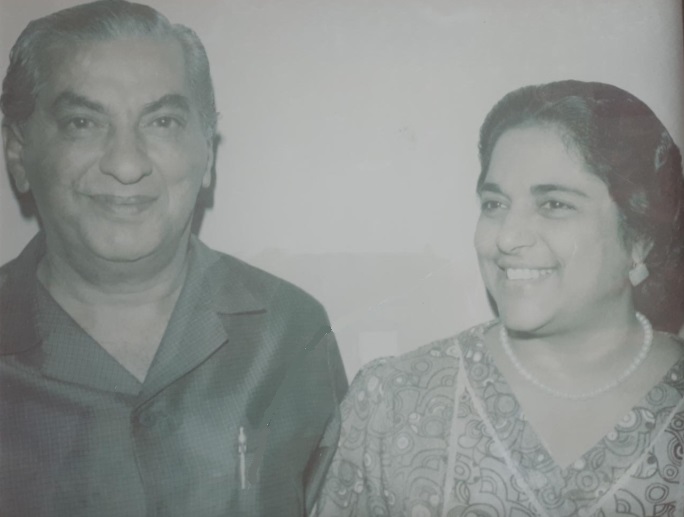
I could see the joy on the late Mukhi Alidina’s face as he would seat himself comfortably on the floor in front of the main podium for a series of selections that covered numerous themes. His commencement of the Ginan with “Ashaji…” had the power to lift the spirit of this rather young and indifferent teenage boy, and take it to a higher plateau. The entire Jamat would join Alidina, as he gained strength, verse after verse, until he would finally come to a stop a minute or two before the first Dua. In the ten to fifteen minutes of a highly charged performance, our temporal and mundane mind-set was transformed to a spiritual plane. I should say the same for Allaudin Daya and Shamshu Bandali Haji. Through their passion for the Ginanic tradition, all three of these individuals brought the Jamat to the realization of life’s basic principles of patience, tolerance, honesty, avoiding ninda (backbiting) and good ethics (such as in Eji namata, khamta gurji sun rakho), the importance of morning and evening prayers (Eji sandhya veda, biji sandhya and triji sandhya), the Ismaili principles of service (Eji panch mi bari dasondh…) and of course, the obedience to the teachings of Prophet Muhammad (S.A.S.) and the guidance of the Imam of the Time. Their great recitations would prepare us for the prayers that would follow.
article continues after photo
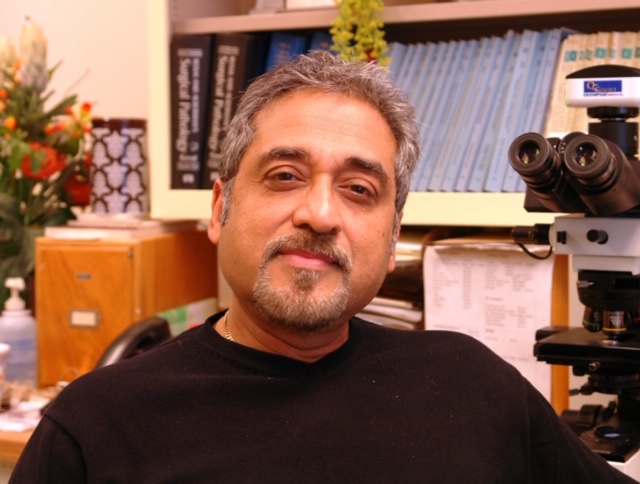
How did Allaudin Daya become my hero? When Karimabad Jamatkhana opened, it became my primary Jamatkhana, as it was a lot closer to our flat on United Nations Road than Upanga Jamatkhana was. The congregation was much smaller than Upanga’s, as was the Jamatkhana building itself, and I wondered if anyone would ever be able to come close to Mukhi Alidina Jamal’s recitations. A young medical student at the nearby Muhimbili Hospital by the name of Allaudin Daya stepped in to fill the void that I was beginning to feel. Dr. Daya’s recitations were superb, and he was a blessing for the new Karimabad Jamat. His eloquent recitations of the same Anant Akhado that I had heard from Mukhi Jamal, sent chills down my spine, gave me goose bumps and uplifted my spirit. I never dared ask him whether Mukhi Alidina had ever been his coach. I didn’t think so. He resided at the hospital quarters, and I would often meet up with him on the way to the Jamatkhana.
Once I was inside the prayer hall and seated, my eyes wandered to the centre podium area, hoping and wishing to see Dr. Daya rise from his place, and go to the stage to start the recitation like his senior and older compatriot Alidina Jamal, who by now had assumed the role of Mukhisaheb at Upanga Jamatkhana. On most days, Dr. Daya would be called up by the Mukhi, showing the respect the youth commanded in the new Karimabad Jamat. Once I left Dar es Salaam for London, England, the opportunities to attend Jamatkhana became scarcer, as Jamatkhana was a long (and expensive) tube ride away from where I was staying, and I was very busy with my studies. However, Mukhi Alidina Jamal and Dr. Daya had firmly instilled in me a deep love for Ginans. The tradition was solid in my heart.
article continues after photo
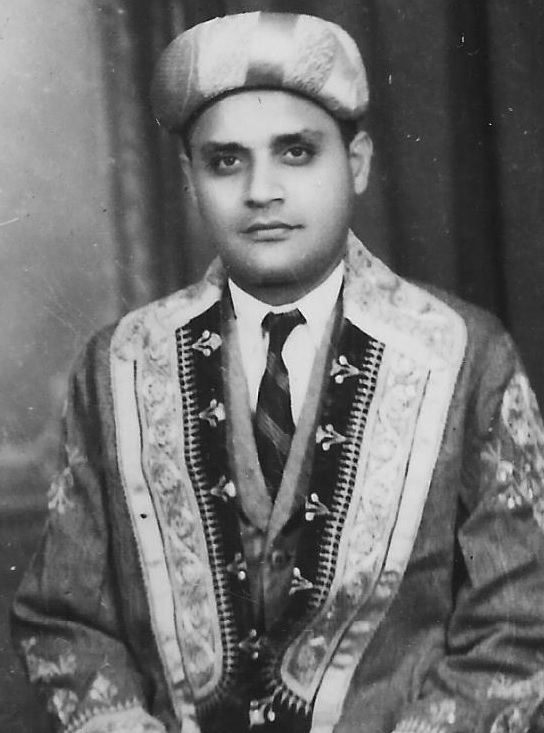
Then several years later, upon my arrival in Canada and initial settlement in Edmonton, I wondered who would assume the roles of my two East African ‘Ashaji’ icons. To my absolute happiness and delight, the role was filled by none other than the late Alwaez Shamshudin Bandali Haji, who sang Anant Akhado in a truly masterful fashion. I might add that during Mawlana Hazar Imam’s Silver Jubilee year (1982-1983), the pleasant and cheerful Alwaez Bandali Haji, completed the entire Anant Akhado of several hundred verses by picking new verses, each time he got the opportunity to sing before the first Dua at Edmonton’s South Side Jamatkhana. In addition to Anant Akhado, Alwaez Haji’s singing of the Chogadiya made the Ginan an instant hit for me, so much so that one day, not having heard the Chogadiya for some time, I went to the Mukhisaheb and requested that Alwaez be invited to recite it. Alwaez, alas, was late that evening but there were numerous future opportunities that came along.
These are the three individuals I shall never forget during my lifetime for their outstanding contribution to the Ginanic tradition.
“Meritocracy” Mawlana Hazar Imam once observed, “is not only limited to intellectual endeavours.” Mukhi Alidina Jamal, Alwaez Shamshuddin Bandali Haji and Dr. Allaudin Daya were meritocratic individuals in their own right who, through their inspiring singing raised the spirit of the Jamat, and have immensely contributed to the Jamats’ increased love for the Imam of the Time. To these three, I would like to add the name of Dr. Hafiz Jamal whom I used to hear reciting the verses of Anant Akhado in Ottawa. He is an outstanding Ginan reciter and an absolute joy to listen to.
I have been able to access the recitations of Anant Akhado by Shamshuddin Bandali Haji on the website of Ginan Central. Here are two tracks consisting of several verses from the Ginan:
article continues after Ginan recordings:
_______________
May the souls of Mukhi Alidina Jamal and Alwaez Shamshuddin Haji rest in peace and as for Dr. Allaudin Daya, I sincerely hope to hear him at least once during the coming years. I also look forward to listening to Dr. Hafiz Jamal.
We invite you to share your thoughts about Alidina Jamal, Shamshu Bandali Haji and Allaudin Daya as well as many others like them whom you know for their outstanding Ginan recitations.
I end this piece with a verse of supplication by Pir Hasan Kabirdin from his Anant Akhado to the Imam of his Time, Mawlana Islam Shah. For Ismailis, each Imam is the same irrespective of his own age or the time he lives in, as he is the bearer of the same Noor (Light) of Imamat.
Ashaji jugpati jugnath Sri Islam Shah
ham man tere umayoji
kayam svami ha(n)sajina raja
ja(m)pudipme shah avo
Ali ana(n)t ana(n)t
Ali anatejo svami shah
anata jo a(n)t tuhi jane ji
Oh Lord Islam Shah, the Lord and the Master of the Age;
My mind (and heart) supplicates to you;
You are the eternal Lord and the King of the soul;
Come to the Indian subcontinent;
Ali You are eternal and unlimited, Ali You are the
Lord of unlimited souls or eternity;
You are the only Knower of the limits of the unlimited.
Date posted: June 7, 2020.
Last updated: July 1, 2020 (photo of Allaudin Daya added)
Before departing this website please take a moment to review Simerg’s Table of Contents for links to hundreds of thought provoking pieces on a vast array of subjects including faith and culture, history and philosophy, and arts and letters to name a few.
_____________________
We welcome feedback/letters from our readers. Please use the feedback box which appears below. If you don’t see the box please click please click Leave a comment. Your comment may be edited for length and brevity, and is subject to moderation. We are unable to acknowledge unpublished letters.
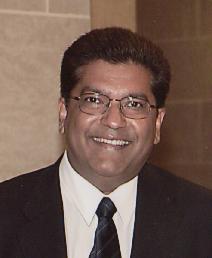
Malik Merchant is the founding publisher/editor of Simerg (2009), Barakah (2017) and Simergphotos (2012). A former IT consultant, he now dedicates his time to small family projects and other passionate endeavours such as the publication of this website. He is the eldest son of the Late Alwaez Jehangir Merchant (1928-2018) and Alwaeza Maleksultan Merchant, who both served Ismaili Jamati institutions together for several decades in professional and honorary capacities. His daughter, Nurin Merchant, is a veterinarian. He may be contacted at Simerg@aol.com.


Dr Mohamed Fazal Manji
I was fortunate that I was living in Upanga, when Mr Alidina Jamal was Mukhi. It became very spiritual environment when he recited ginans; the Jamat listened to the ginans in perfect silence. I have known Dr Allaudin Daya since late 1980 and what a gift he has as well. I also would humbly add two other names who came originally from Southern Highlands province of Tanzania. One was Late Sadru Hassanali Bandali (originally from Chunya, Tanzania , then moved to London UK ) who also was in Upanga at the same time as Mukhi Allidina Jamal. The other one was my father’s cousin Late Dr Hassanali Walji (originally from Mbeya Tanzania and then Nairobi). Dr Walji’s son Dr Anil Walji who lives in Edmonton has also followed his dad.
Loved this article. Alidina Jamal was a towering figure. I too have very fond memories of going to Upanga Jamatkhana early to catch his daily recitation of Anant Akhado. I don’t remember hearIng of people complaining that he got vaaro everyday. What mattered then was that his singing set the tone for the first Dua. I recall fondly his outstanding renditions of “Aavo mara saamiraja” and “Kahet surja sambhado Kamala.”
Ya Ali Madad, Thank you for sharing this ginane “Anant Akaro”. I have a lot of respect for our Pir. Thanks to Pir Hasan Kabirdin we have learned what a spiritual marriage is with our Imam. But I also found a file on YouTube that is the whole ginan. The link is https://www.youtube.com/watch?v=3PJqAVhYfsI
Thank you for your feedback. I highly recommend the work being done by Karim Tharani at the library of the University of Saskatchewan. He has set up an incredible research based resource which also has recitations by more than 100 Ginan reciters of hundreds of Ginans. Please click on http://ginans.usask.ca/. My hats off to Karim for his superb work of a very high standard.
Excellent piece and information. Appreciate the inclusion of audio clips.
I would like to humbly add the names of two people who had a similar impact upon me with respect to Ginans and their meanings. Many of the Ginans I preferred were those that one did not usually hear during regular evening Jamatkhana ceremonies. They naturally sang the more common Ginans, and these individuals were most sought after for ‘varas’.
The two people I’m referring to are late Dr. Alwaez Hassanali Walji of Nairobi and his then younger protege, Shaffique Rawji.
Shaffique now resides in Calgary and has freely given his voice on hundreds of CD’s of Ginans and their meaning (this is done privately and not instead of the Tariqa boards publications). Indeed, I’m not even sure he shares his CDs today.
I have over 100 of Shaffique’s CD’s. When we were new to Bullard, Texas, some 30 years ago (no other Ismailis within 80 miles ), Shaffique’s CD recitations gave us comfort, offered continuity in the practice of our faith and still remain of great importance and reverence to us. Today, there is an extension of the Plano, Texas, Jamatkhana in the area and some 30 Ismailis gather, before Covid-19 restrictions temporarily shut the place.
If anyone has the interest they should try to get a hold of Shaffique’s CDs or listen to him sing a variety of Ginans in person – there is no adding or changing of original words or the intended raag.
Thank you for your feedback. I was able to trace Shaffique Rawji’s recitation of Anant Akhado on youtube at https://www.youtube.com/watch?v=O93AgUy3Ems.
Living in Dar es Salaam, I got the opportunity to listen to Mukhisaheb Alidina Jamal and Dr Alaudin Daya. They were excellent reciters. As for the Late Alwaez Shamshu Bandali Haji, who happen to be my mama, I got to listen to his Ginans through his tapes. I would consider all three as legendary reciters.
I am just curious to know where does Dr Alaudin Daya resides. The last time I heard Dr Daya recite a Ginan was in 1976.
Thank you for your feedback. I will try and reach out to Dr. Daya and ask him to contact you at the email address you have provided.
With best wishes and Ya Ali Madad
Malik Merchant